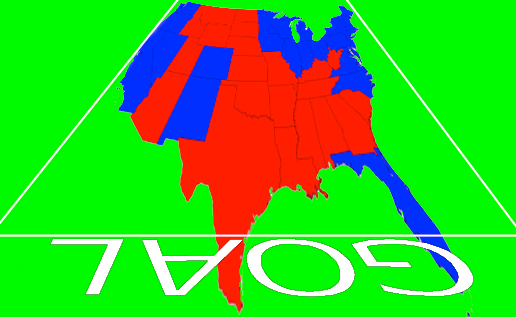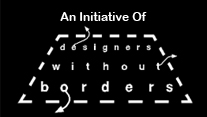Victor Margolin and Sylvia Margolin

Americans are witnessing the birth of a new spectator sport – political football. It’s played with two teams – the Democratic Donkeys and the Republican Elephants. The intensity of the competition is similar to regular football but it differs in that the contact is ideological rather than physical. The rules are comparable. In regular football two teams compete to advance a ball across one or the other’s goal line. In political football, a piece of legislation known as a bill replaces the ball. A big difference between the two games is that in political football the bill has to move across three goal lines, one in the House of Representatives, another in the Senate, and a third in the White House, where the president must sign it.
The bill is initially put into play in the House, where it either passes or is blocked by the opposing team. One blocking tactic is known as a filibuster, which enables a team to prevent a vote on the bill by requiring sixty players to overcome it. In former times, players from both teams would join together to move a bill forward but today the rules of the game have changed. The Donkeys and Elephants tend to oppose each other; hence a majority of one team is required to pass the bill. Thus, a bill introduced in the House will not make its way to the Senate without a majority of votes. In the Senate, comparable rules apply. Given the current loyalties of the Senate players to their own teams, a majority from one team is required to push the bill across the other team’s goal line. On occasion several players from the opposing team may assist the movement. Most recently a considerable number of bills has passed in the House but the bills – more than three hundred of them – have been blocked in the Senate. Consequently, the American public is witnessing a game with a low score. As in other sports, this is frustrating for the spectators who want more results.
While the public does not pay to watch political football, it has worked hard to elect the players of both teams and expects them to successfully pass legislation. Whereas sponsors pay the regular football teams to televise their games, sponsors of political football compensate the players directly. The role of the sponsors in regular football is transparent. They broadcast their advertisements and do not expect to influence the outcome of the game. Sponsors of political football are different. They pay the players to represent their interests as the players introduce, pass, or block legislation. The players in political football usually have numerous sponsors such as oil companies, insurance firms, energy corporations, medical societies, banking organizations, farm groups, and the like. What makes political football difficult to follow is that the spectators don’t know the sponsors in whose interests the players are acting.
Thus, the game needs to become more transparent. A way should be sought for the players to disclose their respective sponsors so that their actions become more evident to the spectators. Players might display the logos of the sponsors on special jackets or sashes or else commentators who describe the game could inform the spectators of the players’ respective sponsors as the game unfolds. The rules of regular football are well-known and easy for the public to follow but the current rules of political football are arcane and not even known to all the players, much less the spectators. Hence, both the House and the Senate have rule keepers who tell the players what they can and can’t do. Their role is similar to the referee in regular football. It takes a number of years to master the rules of political football, thus the more experienced players are best at exercising the most arcane ones. According to the rules, for example, a player can put a hold on a bill and take it out of play, which then requires players of the opposing team to coax and cajole him or her to renege the hold.
The paradox of political football is that the outcome is most satisfying when the players compete least. When the Donkeys and the Elephants were less polarized, more legislation passed. Game scores were higher but the play was less agonistic. Today, Americans are divided about how they would like the game to be played. The Donkeys would prefer a more collaborative game with higher scores, while the Elephants are inclined to play defensively and block as many bills as possible. The future of political football is uncertain. Currently bill blockers are riding high and low scores are still tolerable but should the consequences of these scores become dire, as the lack of legislation severely affects the economic and social life of the United States, spectator frustration is sure to rise and political football, despite its current attraction, may be fighting for its life as a viable public spectacle.
Victor Margolin is Professor Emeritus of Design History at the University of Illinois, Chicago; Sylvia Margolin is a retired professor of social work.











Leave a Reply
You must be logged in to post a comment.